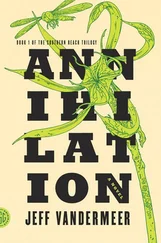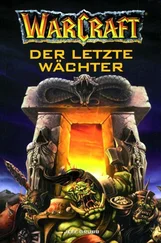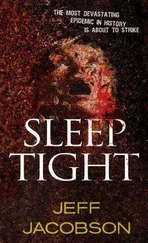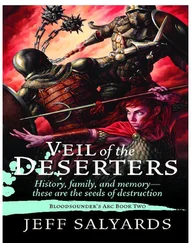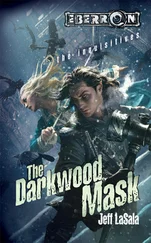Jeff Molofee - NeHe's OpenGL Tutorials
Здесь есть возможность читать онлайн «Jeff Molofee - NeHe's OpenGL Tutorials» весь текст электронной книги совершенно бесплатно (целиком полную версию без сокращений). В некоторых случаях можно слушать аудио, скачать через торрент в формате fb2 и присутствует краткое содержание. Жанр: Программирование, на английском языке. Описание произведения, (предисловие) а так же отзывы посетителей доступны на портале библиотеки ЛибКат.
- Название:NeHe's OpenGL Tutorials
- Автор:
- Жанр:
- Год:неизвестен
- ISBN:нет данных
- Рейтинг книги:3 / 5. Голосов: 1
-
Избранное:Добавить в избранное
- Отзывы:
-
Ваша оценка:
- 60
- 1
- 2
- 3
- 4
- 5
NeHe's OpenGL Tutorials: краткое содержание, описание и аннотация
Предлагаем к чтению аннотацию, описание, краткое содержание или предисловие (зависит от того, что написал сам автор книги «NeHe's OpenGL Tutorials»). Если вы не нашли необходимую информацию о книге — напишите в комментариях, мы постараемся отыскать её.
NeHe's OpenGL Tutorials — читать онлайн бесплатно полную книгу (весь текст) целиком
Ниже представлен текст книги, разбитый по страницам. Система сохранения места последней прочитанной страницы, позволяет с удобством читать онлайн бесплатно книгу «NeHe's OpenGL Tutorials», без необходимости каждый раз заново искать на чём Вы остановились. Поставьте закладку, и сможете в любой момент перейти на страницу, на которой закончили чтение.
Интервал:
Закладка:
glRotatef(xrot, 1.0f, 0.0f, 0.0f); // Rotate On The X Axis
glRotatef(yrot, 0.0f, 1.0f, 0.0f); // Rotate On The Y Axis
DrawObject(); // Draw The Ball
The following code rotates the ball on the x and y axis. By increasing xrot by xrotspeed we rotate the ball on the x-axis. By increasing yrot by yrotspeed we spin the ball on the y-axis. If xrotspeed is a very high value in the positive or negative direction the ball will spin quicker than if xrotspeed was a low value, closer to 0.0f. Same goes for yrotspeed. The higher the value, the faster the ball spins on the y-axis.
Before we return TRUE, we do a glFlush(). This tells OpenGL to render everything left in the GL pipeline before continuing, and can help prevent flickering on slower video cards.
xrot += xrotspeed; // Update X Rotation Angle By xrotspeed
yrot += yrotspeed; // Update Y Rotation Angle By yrotspeed
glFlush(); // Flush The GL Pipeline
return TRUE; // Everything Went OK
}
The following code will watch for key presses. The first 4 lines check to see if you are pressing one of the 4 arrow keys. If you are, the ball is spun right, left, down or up.
The next 2 lines check to see if you are pressing the 'A' or 'Z' keys. Pressing 'A' will zoom you in closer to the ball and pressing 'Z' will zoom you away from the ball.
Pressing 'PAGE UP' will increase the value of height moving the ball up, and pressing 'PAGE DOWN' will decrease the value of height moving the ball down (closer to the floor).
void ProcessKeyboard() // Process Keyboard Results
{
if (keys[VK_RIGHT]) yrotspeed += 0.08f; // Right Arrow Pressed (Increase yrotspeed)
if (keys[VK_LEFT]) yrotspeed –= 0.08f; // Left Arrow Pressed (Decrease yrotspeed)
if (keys[VK_DOWN]) xrotspeed += 0.08f; // Down Arrow Pressed (Increase xrotspeed)
if (keys[VK_UP]) xrotspeed –= 0.08f; // Up Arrow Pressed (Decrease xrotspeed)
if (keys['A']) zoom +=0.05f; // 'A' Key Pressed … Zoom In
if (keys['Z']) zoom –=0.05f; // 'Z' Key Pressed … Zoom Out
if (keys[VK_PRIOR]) height +=0.03f; // Page Up Key Pressed Move Ball Up
if (keys[VK_NEXT]) height –=0.03f; // Page Down Key Pressed Move Ball Down
}
The KillGLWindow() code hasn't changed, so I'll skip over it.
GLvoid KillGLWindow(GLvoid) // Properly Kill The Window
You can skim through the following code. Even though only one line of code has changed in CreateGLWindow(), I have included all of the code so it's easier to follow through the tutorial.
BOOL CreateGLWindow(char* title, int width, int height, int bits, bool fullscreenflag) {
GLuint PixelFormat; // Holds The Results After Searching For A Match
WNDCLASS wc; // Windows Class Structure
DWORD dwExStyle; // Window Extended Style
DWORD dwStyle; // Window Style
fullscreen=fullscreenflag; // Set The Global Fullscreen Flag
hInstance = GetModuleHandle(NULL); // Grab An Instance For Our Window
wc.style = CS_HREDRAW | CS_VREDRAW | CS_OWNDC; // Redraw On Size, And Own DC For Window
wc.lpfnWndProc = (WNDPROC) WndProc; // WndProc Handles Messages
wc.cbClsExtra = 0; // No Extra Window Data
wc.cbWndExtra = 0; // No Extra Window Data
wc.hInstance = hInstance; // Set The Instance
wc.hIcon = LoadIcon(NULL, IDI_WINLOGO); // Load The Default Icon
wc.hCursor = LoadCursor(NULL, IDC_ARROW); // Load The Arrow Pointer
wc.hbrBackground = NULL; // No Background Required For GL
wc.lpszMenuName = NULL; // We Don't Want A Menu
wc.lpszClassName = "OpenGL"; // Set The Class Name
if (!RegisterClass(&wc)) // Attempt To Register The Window Class
{
MessageBox(NULL, "Failed To Register The Window Class.", "ERROR", MB_OK|MB_ICONEXCLAMATION);
return FALSE; // Return FALSE
}
if (fullscreen) // Attempt Fullscreen Mode?
{
DEVMODE dmScreenSettings; // Device Mode
memset(&dmScreenSettings, 0, sizeof(dmScreenSettings)); // Makes Sure Memory's Cleared
dmScreenSettings.dmSize = sizeof(dmScreenSettings); // Size Of The Devmode Structure
dmScreenSettings.dmPelsWidth = width; // Selected Screen Width
dmScreenSettings.dmPelsHeight = height; // Selected Screen Height
dmScreenSettings.dmBitsPerPel = bits; // Selected Bits Per Pixel
dmScreenSettings.dmFields = DM_BITSPERPEL|DM_PELSWIDTH|DM_PELSHEIGHT;
// Try To Set Selected Mode And Get Results. NOTE: CDS_FULLSCREEN Gets Rid Of Start Bar
if (ChangeDisplaySettings(&dmScreenSettings, CDS_FULLSCREEN) != DISP_CHANGE_SUCCESSFUL) {
// If The Mode Fails, Offer Two Options. Quit Or Use Windowed Mode
if (MessageBox(NULL, "The Requested Fullscreen Mode Is Not Supported By\nYour Video Card. Use Windowed Mode Instead?", "NeHe GL", MB_YESNO | MB_ICONEXCLAMATION) == IDYES) {
fullscreen=FALSE; // Windowed Mode Selected. Fullscreen = FALSE
} else
{
// Pop Up A Message Box Letting User Know The Program Is Closing
MessageBox(NULL, "Program Will Now Close.", "ERROR", MB_OK|MB_ICONSTOP);
return FALSE; // Return FALSE
}
}
}
if (fullscreen) // Are We Still In Fullscreen Mode?
{
dwExStyle=WS_EX_APPWINDOW; // Window Extended Style
dwStyle=WS_POPUP | WS_CLIPSIBLINGS | WS_CLIPCHILDREN; // Windows Style
ShowCursor(FALSE); // Hide Mouse Pointer
} else
{
dwExStyle=WS_EX_APPWINDOW | WS_EX_WINDOWEDGE; // Window Extended Style
dwStyle=WS_OVERLAPPEDWINDOW | WS_CLIPSIBLINGS | WS_CLIPCHILDREN;// Windows Style
}
// Create The Window
if (!(hWnd=CreateWindowEx( dwExStyle, // Extended Style For The Window
"OpenGL", // Class Name
title, // Window Title
dwStyle, // Window Style
0, 0, // Window Position
width, height, // Selected Width And Height
NULL, // No Parent Window
NULL, // No Menu
hInstance, // Instance
NULL))) // Dont Pass Anything To WM_CREATE
{
KillGLWindow(); // Reset The Display
MessageBox(NULL, "Window Creation Error.", "ERROR", MB_OK|MB_ICONEXCLAMATION);
return FALSE; // Return FALSE
}
static PIXELFORMATDESCRIPTOR pfd= // pfd Tells Windows How We Want Things To Be
{
sizeof(PIXELFORMATDESCRIPTOR), // Size Of This Pixel Format Descriptor
1, // Version Number
PFD_DRAW_TO_WINDOW | // Format Must Support Window
PFD_SUPPORT_OPENGL | // Format Must Support OpenGL
PFD_DOUBLEBUFFER, // Must Support Double Buffering
PFD_TYPE_RGBA, // Request An RGBA Format
bits, // Select Our Color Depth
0, 0, 0, 0, 0, 0, // Color Bits Ignored
Интервал:
Закладка:
Похожие книги на «NeHe's OpenGL Tutorials»
Представляем Вашему вниманию похожие книги на «NeHe's OpenGL Tutorials» списком для выбора. Мы отобрали схожую по названию и смыслу литературу в надежде предоставить читателям больше вариантов отыскать новые, интересные, ещё непрочитанные произведения.
Обсуждение, отзывы о книге «NeHe's OpenGL Tutorials» и просто собственные мнения читателей. Оставьте ваши комментарии, напишите, что Вы думаете о произведении, его смысле или главных героях. Укажите что конкретно понравилось, а что нет, и почему Вы так считаете.

